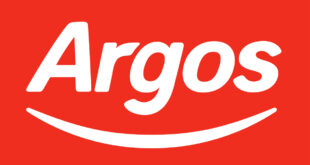The takeover of Royal Mail by billionaire Daniel Kretinsky’s private equity firm EP Group moved a step closer Friday, with Chancellor Jeremy Hunt appearing to welcome a £3.5 billion buyout of Royal Mail shareholders.
EP Group’s takeover bid marks a new stage in the wrecking operation against Royal Mail since privatisation. It sets the stage for a further massive assault on jobs, employment terms, conditions and pensions.
Hunt confirmed EP Group’s bid to control Royal Mail and its parent company International Distribution Services (IDS) would be reviewed under the National Security and Investment Act (2022). EP Group is one of Europe’s largest private industrial groups, with major assets across energy, logistics and retail. But Hunt signalled in-principle support for a takeover: “As a rule, we welcome international investment in British companies.
“One of the reasons we have attracted more greenfield, foreign direct investment than anywhere in the world apart from the US and China is because of our openness to companies from overseas and to the additional, not just capital they bring in, but also the expertise and the funding, so we will continue with that approach.”
Kretinsky raised his firm’s takeover bid by 16 percent last Wednesday to £3.70 per share—a downpayment on expected returns to be wrung from the workforce. His Vesa Equity is already the largest IDS/Royal Mail shareholder, with a 27 percent stake.
IDS chair Keith Williams confirmed the board was “minded to recommend” EP Group’s latest offer as a “fair price”, reflecting both the value of GLS (its international parcels division) and “progress being made on change at Royal Mail to adapt the business to a significant fall in the demand for letters and growth in parcels.”
CWU “engages” with Kretinsky
The Labour Party and Communication Workers Union (CWU) postal executive led by Dave Ward and Martin Walsh have made clear they will support a takeover if Kretinsky works with the CWU.
On Wednesday, Labour’s Shadow Business Secretary Jonathan Reynolds issued a “Dear Daniel” letter to Kretinsky, asking EP Group to commit that it “will work closely with the Communication Workers Union to build a sustainable Royal Mail.”
As window dressing, the CWU is seeking worthless “assurances” from Kretinsky that the universal service obligation and postal workers’ jobs, conditions and pensions will be protected.
An “emergency motion” passed at last month’s national conference claimed that “in the event of any takeover” CWU would “oppose by all means possible any attempt to: Break up the company; Introduce franchising to Royal Mail; Introduce outsourcing into the company; Introduce a three or four-day USO or other severe USO cuts; Raid the pension surplus.”
But this is precisely Kretinsky’s agenda and the CWU will do nothing to oppose it. Ward told a CWU Live Q&A last Wednesday: “The long-standing policy of the union is nationalisation, there’s a general election coming up, but we have to realise that in the current political environment that will be difficult.”
The CWU’s “policy” of nationalisation is pro forma only. The “difficult climate” is the most right-wing Labour Party in history. Starmer and his Shadow Chancellor Rachel Reeves have pledged theirs will be a government of “fiscal responsibility” in “the national interest” (i.e., the London Stock Exchange).
Labour has not only ruled out bringing Royal Mail back into public ownership, it is deeply implicated in the Kretinsky takeover. Former Shadow Business Secretary Chuka Umunna, now an investment banker at JP Morgan, has been the point man for EP Group with the senior Labour team.
In place of nationalisation, Ward proposes: “This is a moment where we can start to explore different models of ownership — mutuals, not for profit, public benefit companies that we’ve been exploring with the Labour Party.” But talk of “alternative models” giving customers and workers “more say” is political fantasy. It is a screen for the CWU’s active collusion with Kretinsky.
Ward and the CWU will work with Kretinsky just as they have colluded with the Royal Mail/IDS board, including joint authorship of last year’s surrender document that set fire to postal workers’ terms and conditions.
The CWU has lectured postal workers to “move on” and forgive and forget that betrayal, but anger remains.
This intruded on last week’s CWU Live Q&A in a torrent of hostile comments in the online chat, with CWU Head of Communications Chris Webb forced to ask Ward about “a group of members” who were “taking the view that ‘I gave up 18 days of strike action, you guys signed this agreement, and everything we said we were fighting against in terms of a takeover from Vesa, or a company like them, is now happening’ and those people are laying the blame for that at the doorstep of the trade union.”
Ward replied contemptuously: “That’s just complete nonsense. It shows a lack of understanding of the way the world works, the way private companies work, the way billionaires operate. You can’t just stop it. You have to get in there and engage with people.”
Ward declares there is “no alternative” to the dictates of the capitalist market. It is a re-run of his arguments last year in support of the negotiators’ agreement with Simon Thompson. He preaches acceptance of the agenda of the IDS board and private equity parasites like EP Group/Vesa in the interests of a trade union bureaucracy whose salary packages (Dave Ward: £142,485) and lavish expense accounts place them in the top 5 percent of income earners in the UK, with a direct stake in the exploitation of their own members.
Walsh lashed-out at criticism from CWU members, backing Ward and claiming “the choice last year” was either accepting the company-union agreement “or administration”. He claimed “no government can use public money to fund a private company”—despite billions being funnelled by the government into corporate subsidies and other handouts since 2008. “The alternative was thousands and thousands of job losses”. i.e., the very outcome now staring Royal Mail workers in the face, courtesy of the CWU.
Ward boasted that CWU HQ is now recognised by Kretinsky and Labour as having a “pivotal” role to play in helping to broker a new set of arrangements at Royal Mail. He concluded: “the outcome of that will really depend on what the government says, what Labour says and on what Vesa says to us, and how strong the members are in getting behind the union’s position.”
Webb, Ward and Walsh have repeatedly stated this past week that the union’s “realistic” policy is one of “engagement”. This is a euphemism for corporatism—the active collusion between the bureaucracy, corporate management and the government. What postal workers need is not engagement but opposition!
CWU head office has called for gate meetings as part of a bogus “reconnecting in the workplace” exercise. Postal workers must intervene and prepare their own emergency resolutions, demanding the removal of the CWU postal executive and a campaign of non-compliance with last year’s national agreement that was pushed through based on lies and disinformation.
Gate meetings should adopt measures to protect postal workers from impossible workloads and company bullying through collective action, including a ban on overtime. Rank-and-file workplace committees should be set-up at every depot to draw up grievances and prepare for a rank-and-file conference to map out a strategy to fight back. An appeal for support should be made to workers at GLS, Amazon, DPD, UPS and other post and logistics workers in the UK and internationally.
The Postal Workers Rank-and-File Committee is holding an online meeting on Sunday June 9, at 7pm. Register here to attend.
Postal workers: Make your voice heard! Tell us about conditions in your workplace
All submissions will be kept anonymous
Source link



